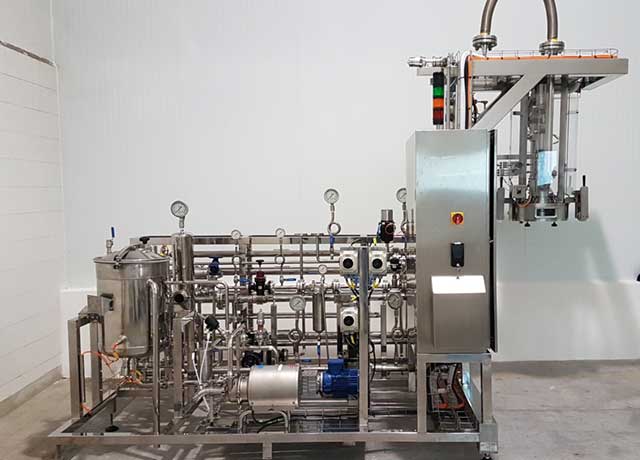On-site trials: a low-risk approach to proof of concept

There is a lot of truth to the old saying ‘seeing is believing’. Trials are invaluable for assessing product quality parameters such as appearance or organoleptic performance, testing packaging designs and consumer research, producing samples for chemical or microbial analysis, or even assessing the feasibility of production or waste treatment.
Buying dedicated equipment for trials can be prohibitively expensive. However, good equipment which is flexible enough to be used for a wide variety of trial and production purposes can quickly repay the initial investment. To facilitate this type of trial, HRS has produced a range of trial-size equipment with the reliability and performance of their full-size counterparts, but which have been specifically designed to be easily portable between production lines or even sites.
The HRS Asepticblock Mini Series allows manufacturers to produce new trial products involving pasteurisation and aseptic packing without the expense or wastage that can accompany full-scale trials. It also alleviates the need to suspend or interfere with routine production. The HRS Asepticblock Mini Series enables production of a full-scale final pack, but using as little as 20 kg of product.
Another aid to conducting trials is the HRS BPM Series of reciprocating, positive-displacement pumps. The BPM is a mobile version of the standard BP Series pump, which is mounted on a mobile skid unit for easy movement, allowing it to be used across multiple production lines and locations. This makes it popular with food manufacturers producing short runs of specialist products and numerous trials, as they can enjoy the benefits of a BP Series pump without the need to invest in a dedicated pump for each line, resulting in considerable capital savings.
The modular nature of many HRS heat exchangers means that we can also provide trial units of many of our heat exchanger models. Recent examples using trial versions of the HRS R Series of scraped surface heat exchangers have included a chocolate manufacturer, cheese producer, a jam factory and for wax production. In each case mounting the trial heat exchanger and relevant controls on pallets or a purpose-designed suitable skid frame not only aids delivery and installation of the equipment, but makes it easier to move around production facilities, for example to investigate the use of different lines and possible installation locations.
Another benefit of the R Series is its ability to recover product at the end of production runs. By running the unit in reverse a large percentage of the hold-up volume is recovered, with this function being demonstrated trials with viscous products such as pet food and custard.
Investing in any new processing equipment not only represents a significant capital outlay, but results in inevitable disruption during installation, however by trialling equipment prior to investment both users and manufacturers can be sure that the best solution has been chosen.